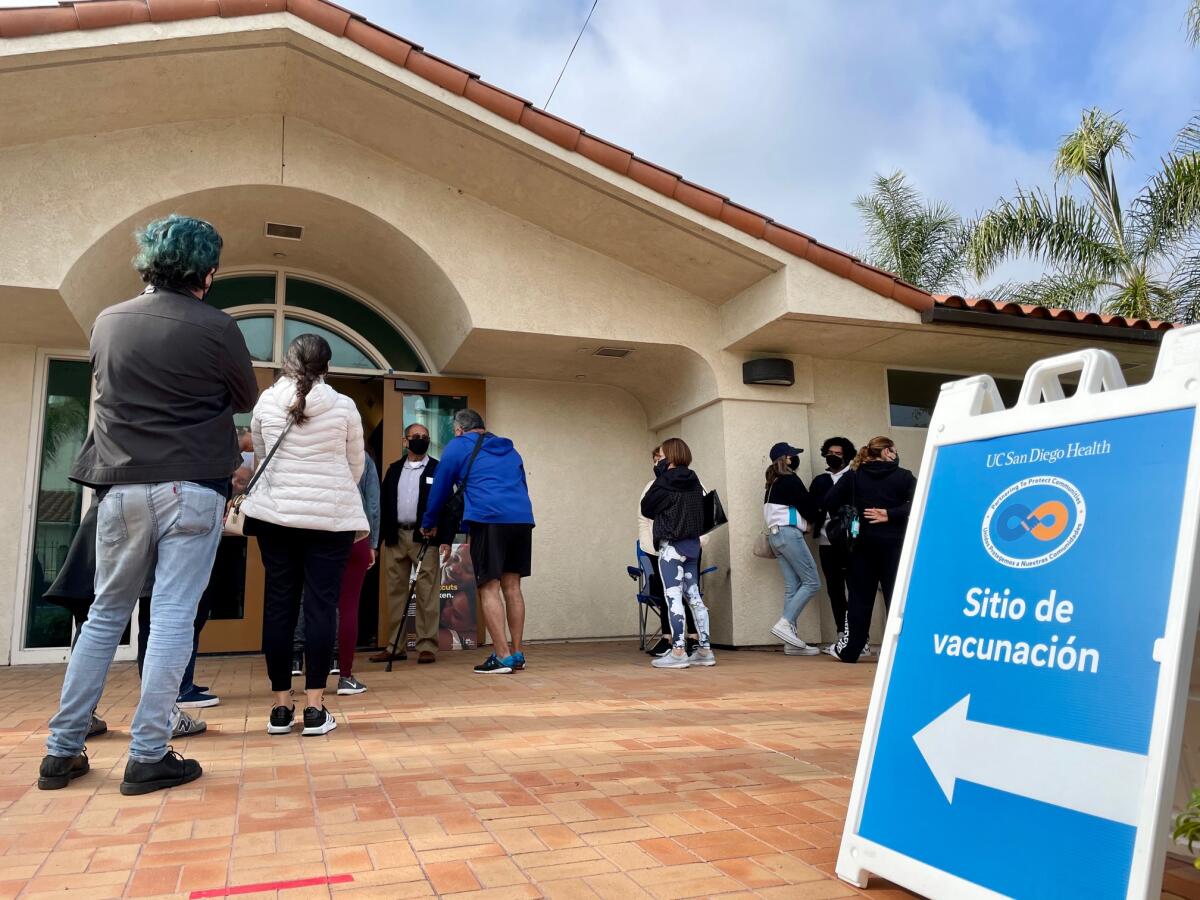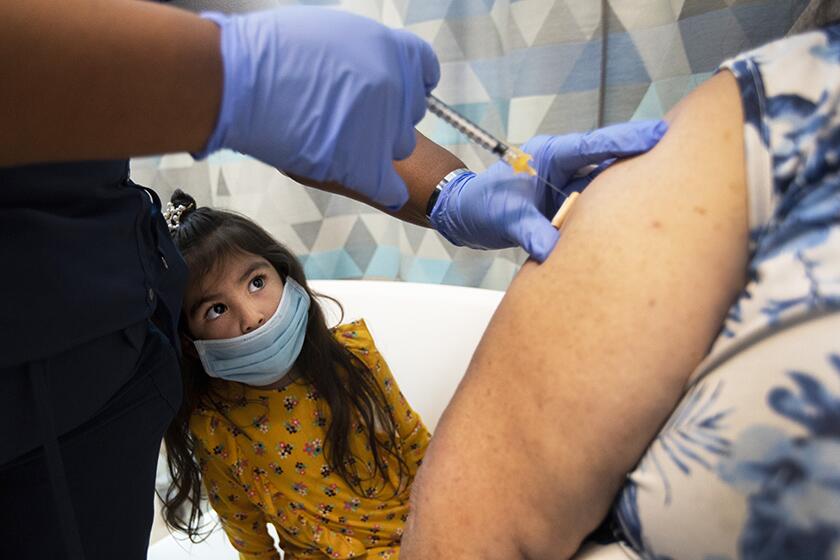Op-Ed: Cuts to COVID relief programs are coming. Once again Latinos will bear the brunt of the effect

- Share via
Last week President Biden signed a new government spending bill into law. The roughly $22.5 billion for emergency funding for COVID-19 response efforts that the White House had requested was not included in the bill.
That was removed after congressional Republicans pushed back on spending more on COVID relief, saying they needed to better understand how the money already allocated to those efforts has been spent thus far. The cutbacks will affect, among other programs, payments to treat and vaccinate people without insurance, as well as the purchase and shipment of monoclonal antibody treatments. As has been true throughout the COVID-19 pandemic, the people likely to suffer most from these changes to COVID relief programs are communities of color, especially Latinos.
Even without the cuts to COVID spending by the government, it is important to determine what policy responses are needed federally and in California to address the health inequities Latinos and other people of color face, all of which were made worse by the pandemic. We need to prevent these injustices from reoccurring should there be a new COVID-19 surge, or in the inevitable case of a new pandemic.
Latinos have long been targets of inhumane medical policies. Their hard-earned skepticism toward government is now contributing to vaccine resistance.
The latest data show what has consistently been reported for the last two years: The Latino population has borne the brunt of the suffering caused by COVID-19. Latinos make up 38.9% of California’s population but 47.8% of its confirmed COVID infections and 44% of recorded COVID deaths. By contrast, non-Latino whites represent 36.6% of the state population and are 24.3% of confirmed COVID cases and 34.1% of recorded COVID deaths. Similar disparities exist in vaccinations in the state: Only 64% of Latinos have received at least one COVID vaccine dose compared with 74% of the non-Latino white population.
Research found many reasons why Latinos in California were disproportionately affected by COVID-19. They include Latinos’ overrepresentation in frontline occupations, which are associated with higher risk of infection through more frequent exposure to the virus. Latinos are also more likely than non-Latino whites to live in overcrowded housing that is unsuitable for proper quarantine and isolation.
A lack of access to healthcare and eligibility for health insurance made it hard to test, treat and vaccinate people at the height of the pandemic. Even though there was government funding that provided COVID testing and vaccines for the uninsured and underinsured, those individuals were less likely to have a regular source of healthcare and did not necessarily know that free testing and vaccinations were available to them or where to access these services.
Fear and mistrust of the health system among Latino immigrants, particularly those who are undocumented, discourages individuals from seeking care, even when they have COVID-19 symptoms. This increased the risk of adverse consequences from COVID, including death.
Now with federal funding of testing, treatment and vaccinations being cut, Latinos will probably see an already unjust situation get worse.
Rosa Cardenas built a successful garment business with a first-grade education. The family’s progress is now threatened by the pandemic.
Before a new coronavirus variant causes another surge in illnesses and deaths, we need to take steps to protect this population. To start, we need to improve access to health insurance coverage for all, including those who are undocumented. Gov. Gavin Newsom’s proposal to expand Medi-Cal to all low-income, undocumented immigrants by 2024 is necessary but will still leave hundreds of thousands of people uncovered because they earn more than the income ceiling. We also need to increase access to broadband and telehealth services to make healthcare more convenient for Latinos and other people of color.
Legal status should not be used to exclude immigrants from assistance, particularly when you consider all the undocumented essential workers who supported day-to-day activities during the last two years of the COVID-19 pandemic. We need to design crisis cash assistance and nutritional support policies that do not exclude the undocumented population. More affordable housing could have a tremendous effect on public health as well because it would contribute to reduced crowding.
COVID-19 is not likely to go away. We can learn to live with the virus, with proper financing for treatment and research as the disease moves to an endemic stage. That requires creating stronger, more inclusive health equity policies for the communities disproportionately affected by COVID. Only by doing that will we avoid repeating the same mistakes when a new variant hits. Only then will we be better prepared for the next pandemic.
Arturo Vargas Bustamante is a professor of health policy and management at UCLA and a director at the UCLA Latino Policy and Politics Institute.
More to Read
A cure for the common opinion
Get thought-provoking perspectives with our weekly newsletter.
You may occasionally receive promotional content from the Los Angeles Times.












